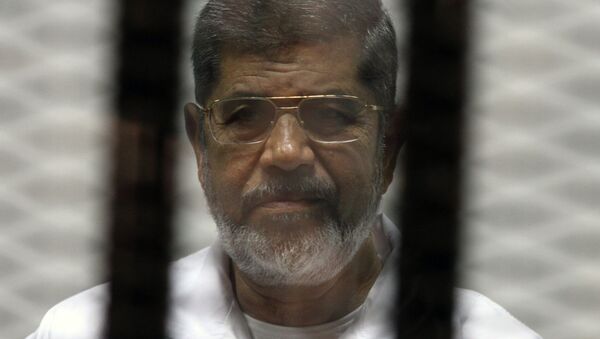Egyptian authorities are refusing to allow Morsi to be buried in his family cemetery, his son Abdullah Mohamed Morsi told Reuters on Monday. He stressed, cited by Reuters, that Morsi's family did not know the location of the body and that their only contact with authorities was through family lawyers.
Morsi became the president in 2012 after Hosni Mubarak’s resignation amid the Arab Spring uprising. In July 2013, during a wave of public discontent, the Egyptian army ousted Morsi and declared a transition period in the country.
Morsi supporters staged mass protests, demanding his reinstatement. Hundreds of Egyptians were reportedly killed in the subsequent riots and clashes. Morsi and many of his supporters were imprisoned.
The former president was then sentenced to death in June 2015, in part for a mass jail break during the 2011 uprising. In November 2016, the Egyptian Court of Cassation overturned the life sentence and ordered a retrial.
Morsi was then sentenced to life imprisonment by an Egyptian court in September 2017, for passing army and state security secrets to Qatar as a means to weaken the Egyptian state, as well as for espionage in favor of Hamas and Hezbollah.


